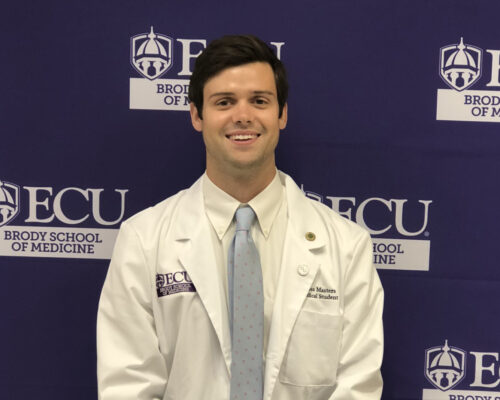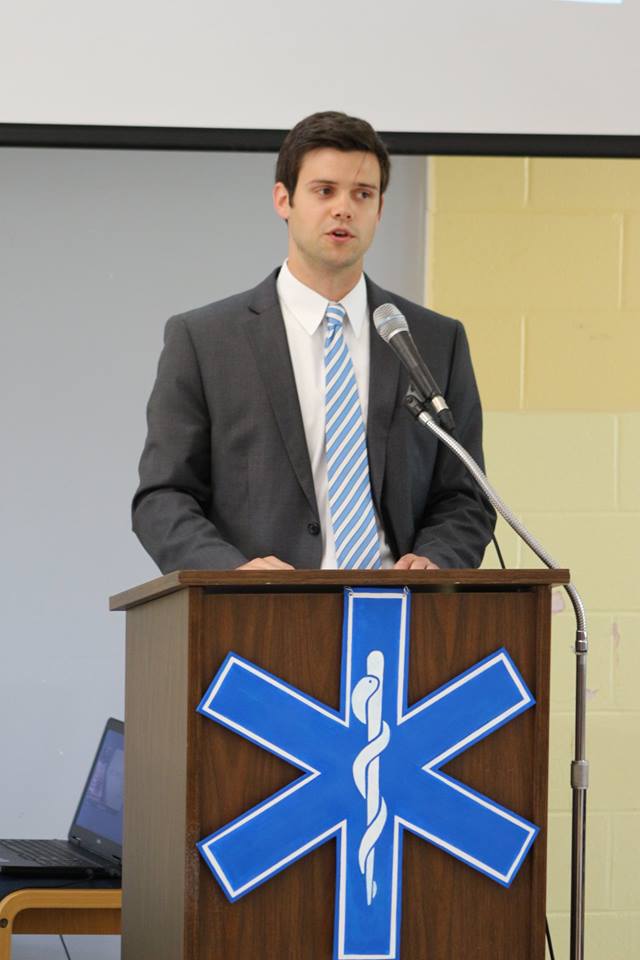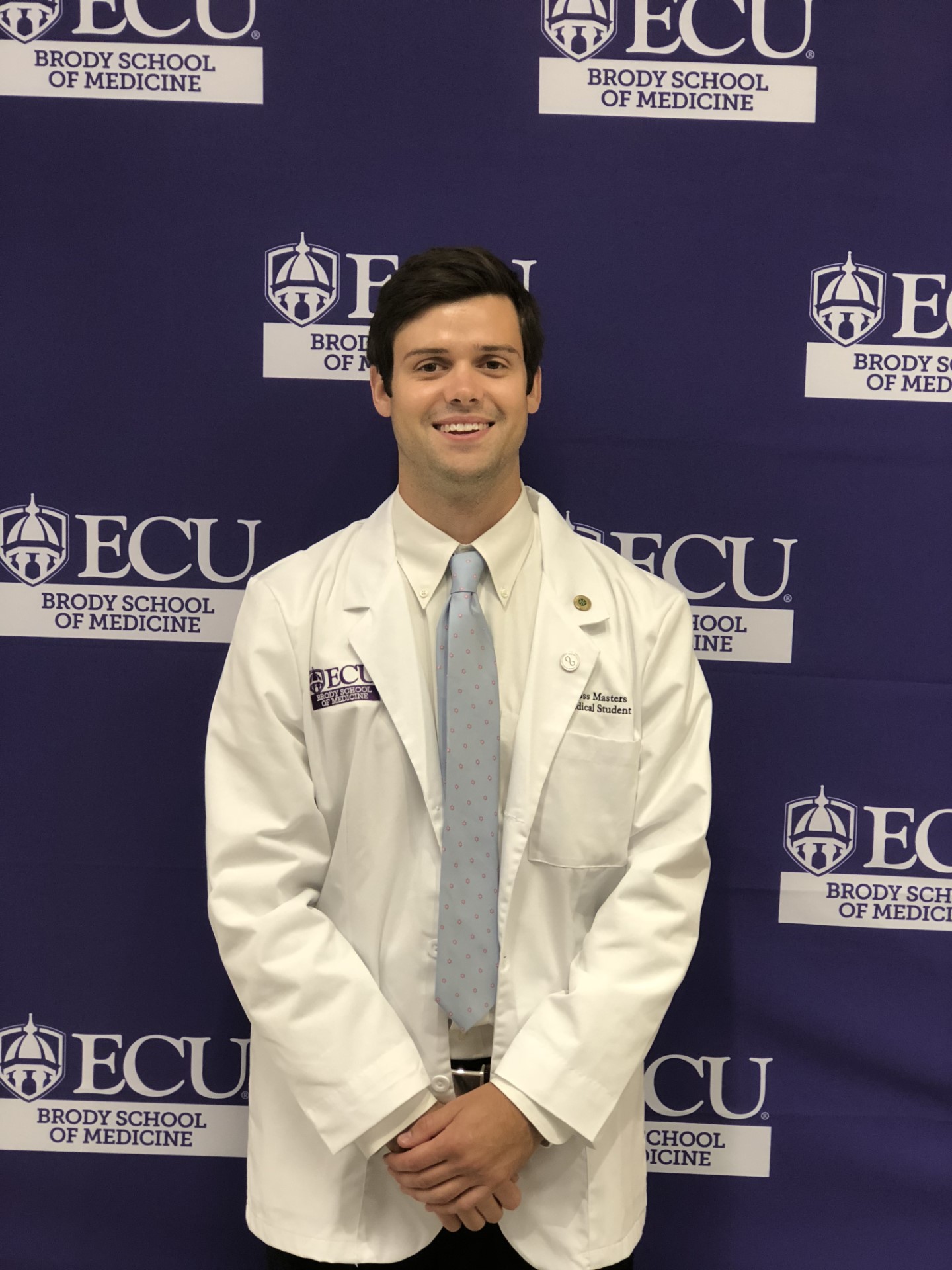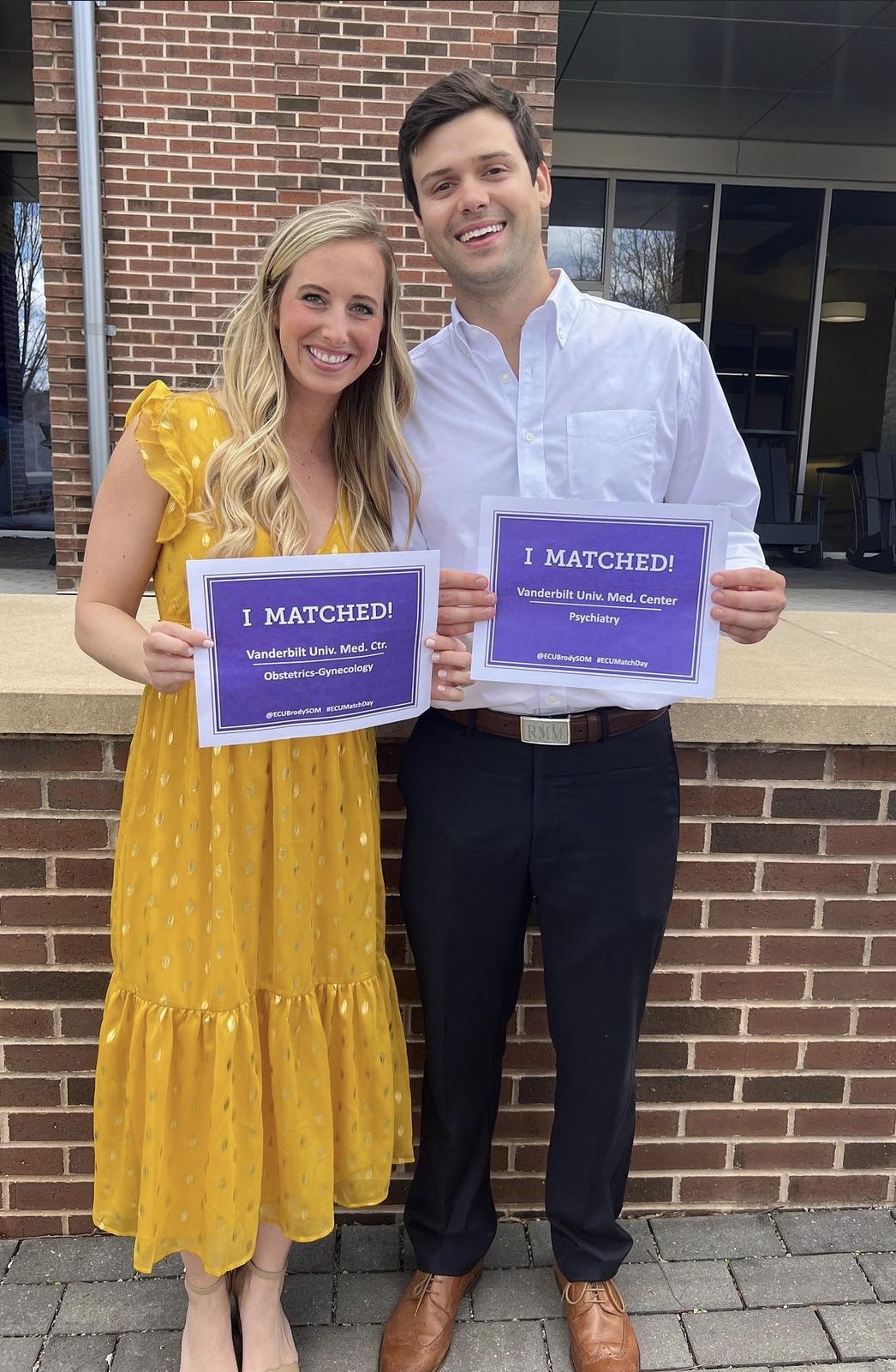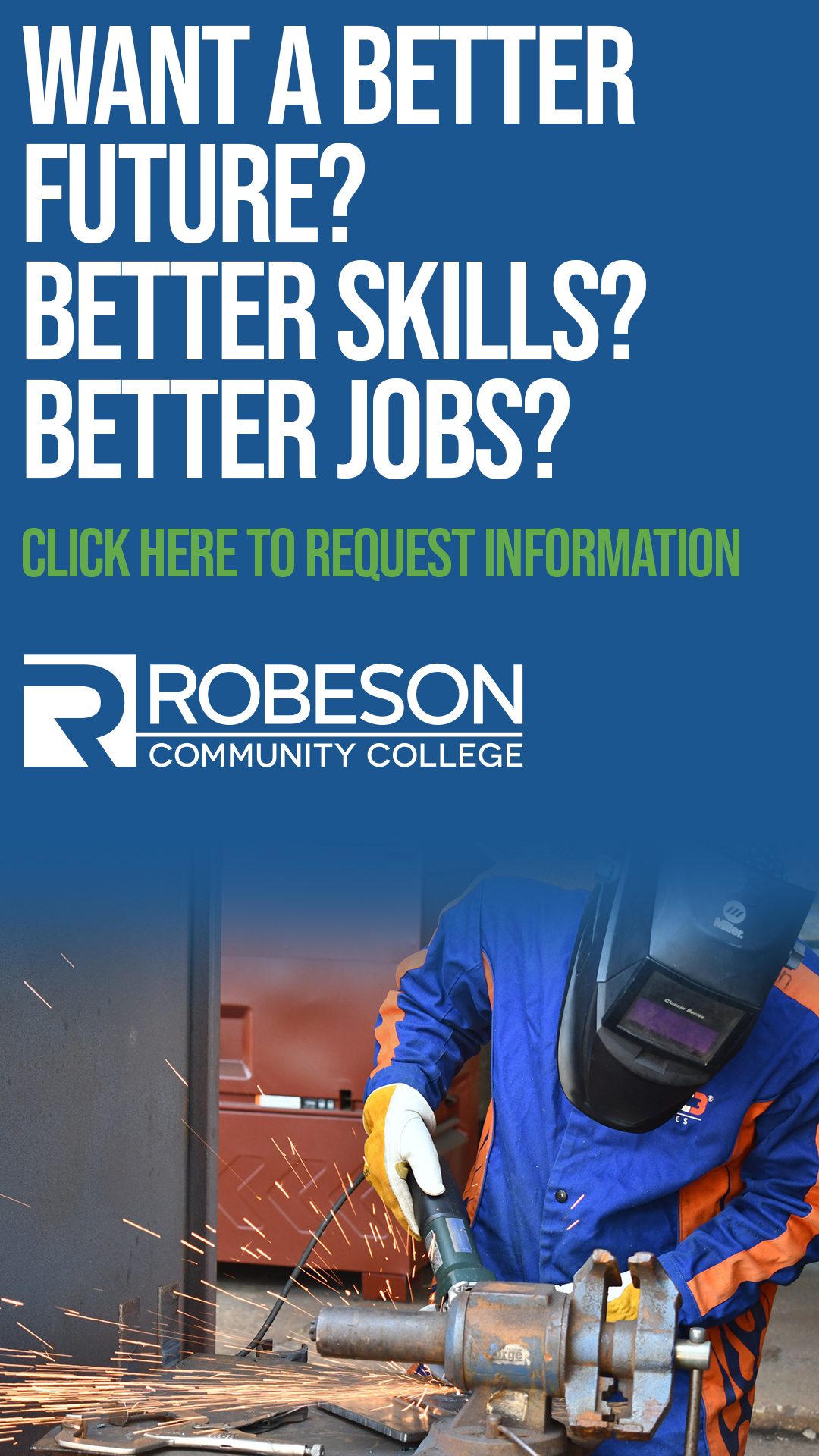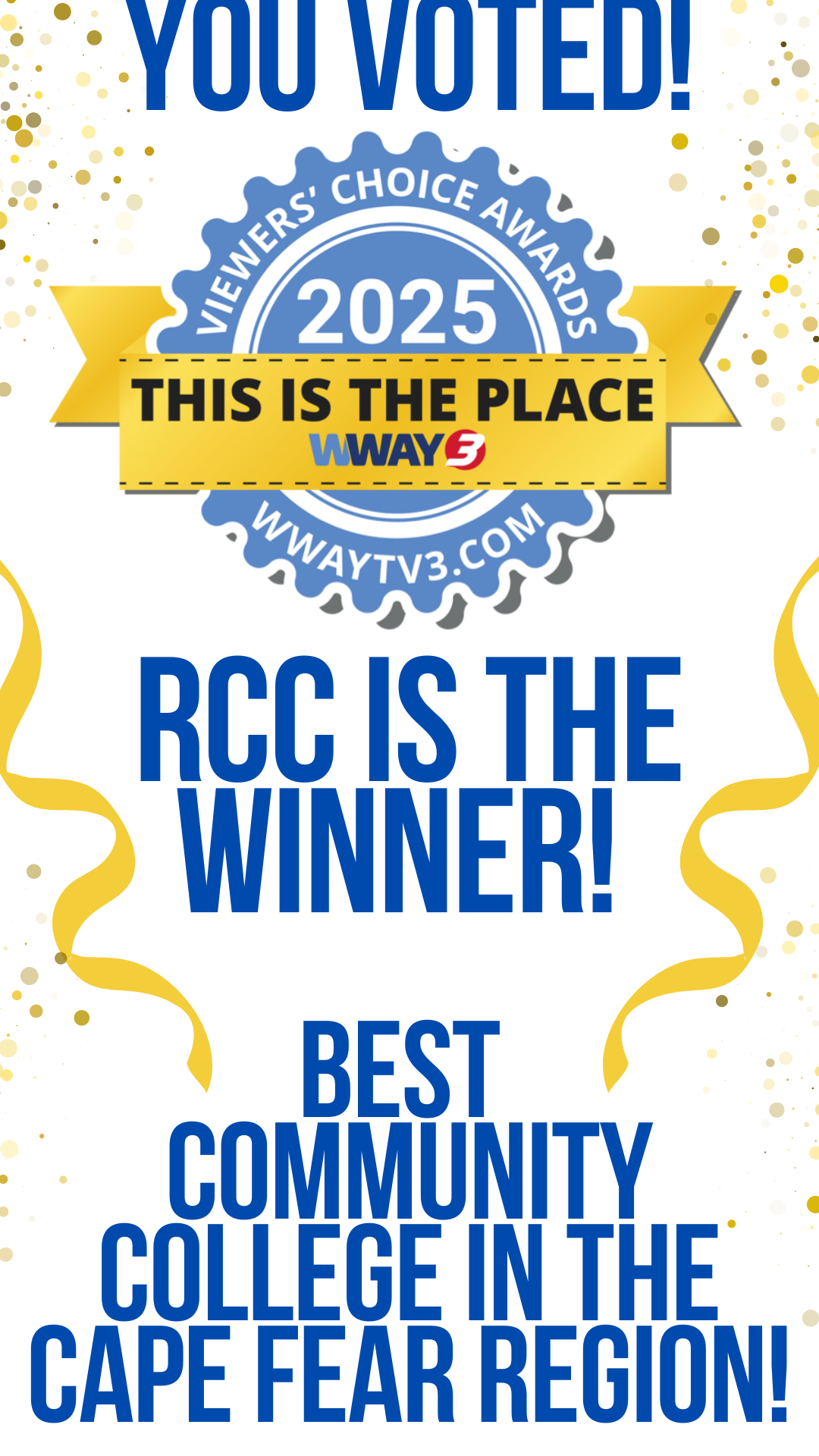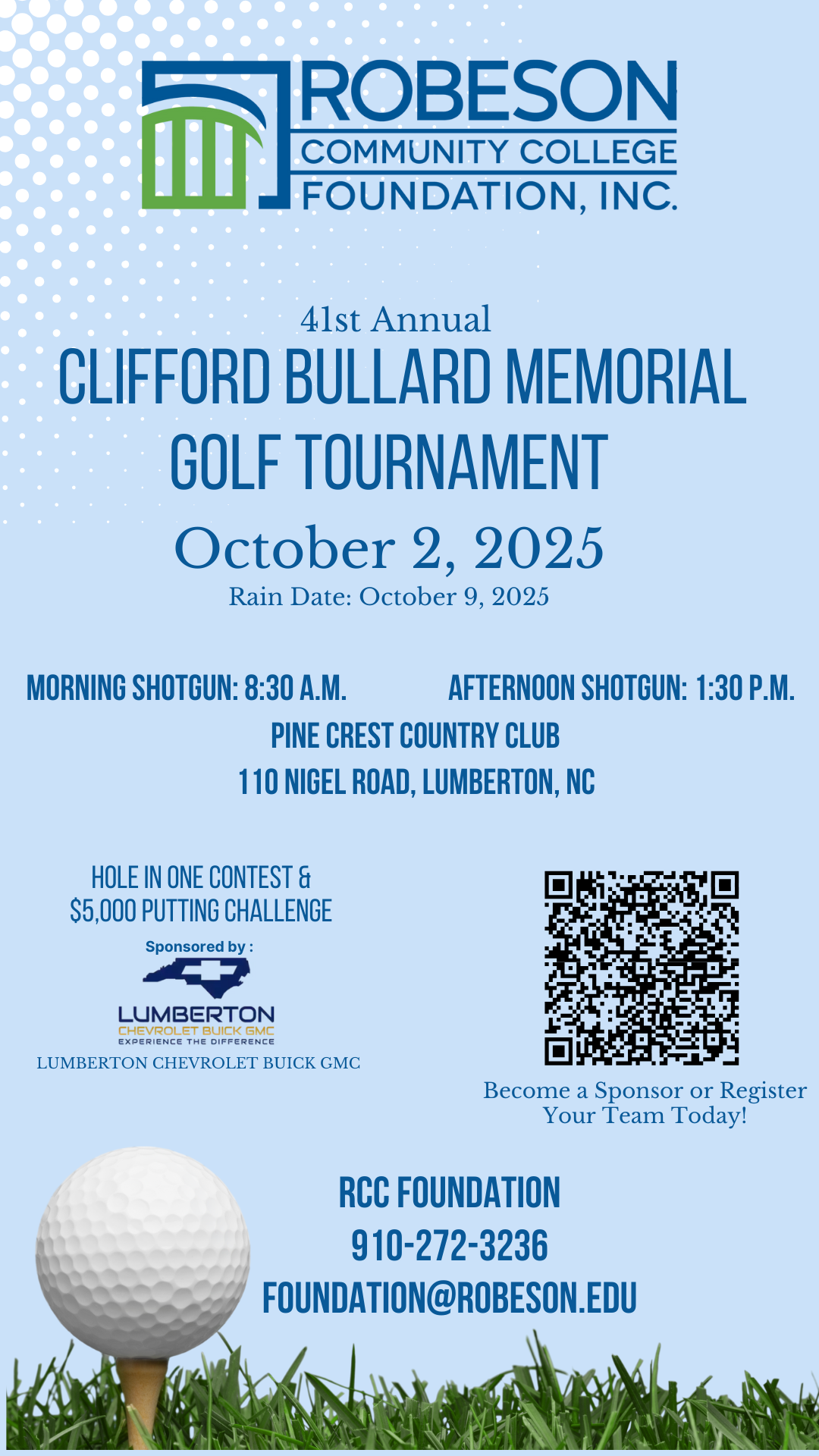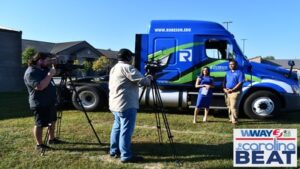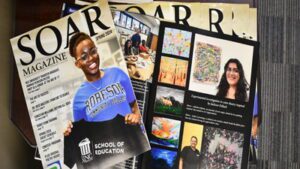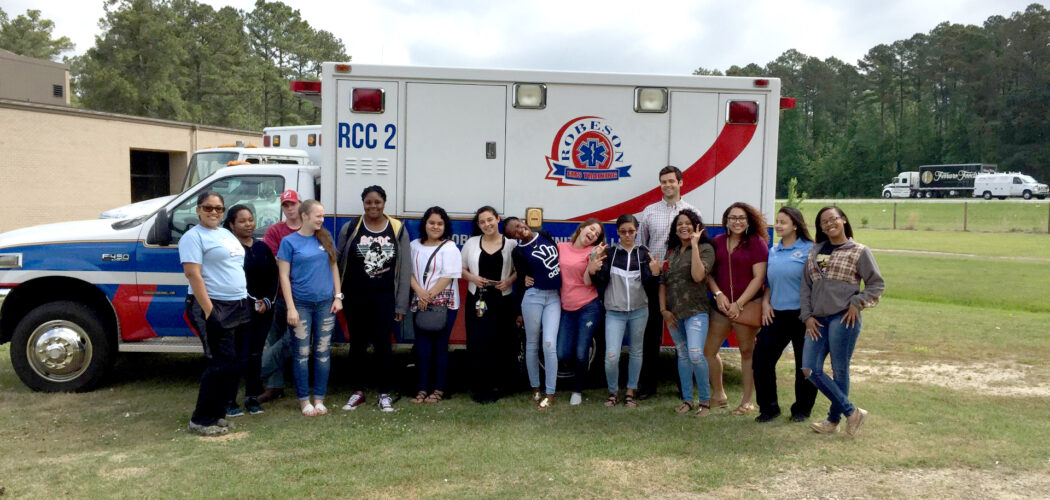
From EMT to MD: How RCC started Dr. Ross Masters on his path in medicine
Taking just one class at Robeson Community College could change your life forever. That was the case for Lumberton native, Dr. Ross Masters, who decided to try out the medical field by enrolling in the Emergency Medical Technician continuing education class at RCC.
“I wanted something that was a little more impactful on other people’s lives,” Masters said, who had already earned a degree in political science from UNC and was working in sales. “I decided I wanted to get into medicine and I thought the best way to do that was to get some practical experience.”
It was a decision that would take him into healthcare first as an EMT, then as a Paramedic, and eventually lead him to medical school at The Brody School of Medicine at East Carolina University. He is currently serving as a medical doctor in psychiatry in his second year of residency at Vanderbilt in Nashville, Tennessee.
“My paramedic experience is essentially what got me into medical school,” Masters said. “Working in EMS is a rewarding career path, it’s fun, and you can use that experience and knowledge gained to make that next step into becoming a PA, MD, or a Nurse.”
Masters says the program gave him insight into the medical profession that he would not have had otherwise.
“I started reaping rewards from the program, while I was in the program… I was getting a lot of experience on the ambulance,” Masters said. “So, then I thought, ‘I’ve got my EMT basic, but I’m not able to do as much in the field with that as I would like to,’ so that’s when I decided that I should become a paramedic before I go to medical school, to make sure I really liked taking care of patients.”
RCC was offering a paramedic class that Masters says was “open at the perfect time, that was right in line with my schedule, so I enrolled and that was that.”
“I didn’t know if medicine was what I really wanted to do, but I thought, I can at least work as a paramedic and be the person who is in charge of decision-making and get to do major interventions for people. I thought it would be a good way to see if going to med school for four years and residency would be worth it.”
Masters discovered that it was exactly what he wanted to do and he developed a passion for it.
“100% personally and professional,” Masters stated.
“When I started working as a paramedic, I realized how much I enjoyed the personal connections I made with patients while I was in the ambulance. I enjoyed how much I was able to help them, so that solidified how much I wanted to do medicine,” Masters said.
“From a professional standpoint, when I went to interviews and could talk about the things that I was able to do in saving patients – starting IVs, making diagnostic decisions on the ambulance, coming up with quick treatment plans – when I was able to talk about that in interviews, it was extremely helpful for me.”
The experience from being a paramedic also gave him a competitive edge in getting into medical school, which as Masters says, wasn’t an easy process.
“Having worked in medicine, when people are interviewing for medical school, they say ‘This is what I think I would like about medicine,’ but they hadn’t had as thorough an experience as I had had, so I wasn’t speaking in hypotheticals, I was speaking in concrete terms,” Masters stated. “And I think that was helpful for me too, being able to give concrete examples from working as a paramedic.”
Serving on the ambulance and working as a paramedic also gave Masters confidence as the decision maker, a preview to what being a doctor would be like one day.
“A lot of people who become EMT basics will work as nursing assistants, but to work in that paramedic role where you are the decision maker, you know how to read EKGs and you know how to do a lot of different things already, it kind of puts you in a step above the rest of the competition getting into med school, which is a really difficult thing to do otherwise,” Masters said.
“The difference in working in EMS and some of the other allied health sciences is that if you go far enough in EMS, you are the decision maker on the ambulance, and there is no faster way to get to that point than EMS,” stated Masters. “To be able to do a yearlong certificate program or even a two-year associate program and then to be able to be in an independent decision-making role and a leadership role, I think it’s a pretty expedited path.”
Before entering medical school, Masters also gained experience teaching EMT Basic at Robeson Community College to students at Lumberton High School and UNC Pembroke. It was an opportunity for Masters to develop relationships and serve through EMS in a greater capacity.
“I liked all the folks that I interacted with in the EMS system throughout Robeson County, it is really a great community of people who are really sharp and know what they are doing,” Masters said. “I think that in and of itself makes it worth it, the community you build and the skills you learn and how fun the job is… it’s very high-paced.”
As a student at RCC, Masters says, “I loved my instructors, I felt like they had the practical experience and the theoretical knowledge that taught me everything I needed to know while I was there… your preceptors are all really outstanding folks too, I think that’s important to say… you do like 500 hours on the ambulance and in the emergency department, everyone I worked with was very knowledgeable… they were great to learn from.”
Currently in residency with 2 years and 11 months left to go, Masters says that although he pivoted to psychiatry, “there are still links to EMS and things that make sense to me, and being a paramedic helped me to narrow that down to become a psychiatrist.”
Residency he says is a lot of work, but he’s enjoying it.
“It’s an accumulation of my experiences,” Masters says. “I’m doing some good and engaging with interesting people and interesting material and I feel that I am able to make a difference.”
The ability to make a difference is the reason he started on this journey to begin with.
Masters and his wife plan to move back to North Carolina near Charlotte once they both complete their residency at Vanderbilt. His wife is currently a resident OBGYN, they met while in medical school.
“My experience as a student and then later working at Robeson Community College was excellent,” Masters said. “I think Robeson County is a really great place to learn EMS and all the affiliates of Robeson County are great… just a good environment for learning.”
Seats are still available in the EMS degree program at Robeson Community College, as well as in the upcoming EMT continuing education course. Classes begin August 14. If you would like to learn more, please contact Kenny Locklear at klocklear@robeson.edu or 910-272-3404. You can also visit our website at www.robeson.edu/ems.
- Masters served as the speaker for a graduating paramedic class in 2018.
- Masters takes part in a “white coat” ceremony where he was able to wear his white coat as a medical student at ECU.
- “Match Day with my wife,” stated Ross Masters. “When you graduate medical school, you have to go through “The Match” to get placed in residency. Basically your apply and interview at a lot of places, and then every program and recent medical school graduate gets put into an algorithm called ‘The Match.’ It decides where you do your training based on your preferences and the preferences of the residency programs.”
